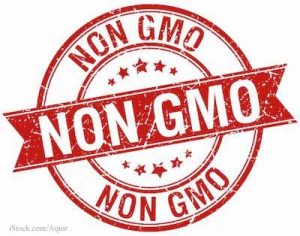A few days ago we told you about the “No on 37” response to California ballot initiative Prop 37. Proposition 37 will make it illegal to sell foods that contain genetically modified organisms (GMO) or genetically engineered ingredients (GE) unless the label lists those foods on the package.
 No on 37 said that “Proposition 37 would ban the sale of tens of thousands of … grocery products.” Stacy Malkan of CARighttoKnow.org told Food Poisoning Bulletin, “Prop 37 does not ‘ban the sale’ of food unless it is specifically repackaged. It requires companies to add a few words to their labels. How is this going to increase the cost of food by billions of dollars? Remember, these are the same companies that told us DDT and Agent Orange were safe. Personally I don’t trust them to have our best interests at heart and I would rather make my own choices about what I eat and feed my family.”
No on 37 said that “Proposition 37 would ban the sale of tens of thousands of … grocery products.” Stacy Malkan of CARighttoKnow.org told Food Poisoning Bulletin, “Prop 37 does not ‘ban the sale’ of food unless it is specifically repackaged. It requires companies to add a few words to their labels. How is this going to increase the cost of food by billions of dollars? Remember, these are the same companies that told us DDT and Agent Orange were safe. Personally I don’t trust them to have our best interests at heart and I would rather make my own choices about what I eat and feed my family.”
It is true that there have been no long-term studies of the potential risks of genetically modified food. The food is changed because its DNA has been altered with the addition of genes from plants, animals, viruses, and bacteria. For instance, GMO corn produces its own pesticides. The corn is regulated by the Environmental Protection Agency as an insecticide, but it is sold for human consumption unlabeled.
At the same time, Plant Incorporated Protectants, as plants that produce their own pesticides are called, are “tested against human safety standards for toxicity, allergenicity, and skin and eye irritation, as well as long-term effects including cancer, birth defects, and reproductive and neurological system disorders,” according to the EPA. Scientists evaluate the exposure to pestsicides from food, drinking water, and direct exposure to determine the likelihood that the pesticides in that food would produce a health risk.
The EPA states that “based on our reviews of the scientific studies … EPA determined that these genetically engineered PIP products … would not pose unreasonable risk to human health and the environment during their time-limited registration.” But as we told you in May, Dr. Ted Labuza, food science professor at the University of Minnesota, says “if people are concerned about something it’s logical to label it. The principle of informed consent applies here. People have the right to avoid something if they don’t want to eat it.” And the American Medical Association, while it would not endorse labeling, has recommended that the FDA test GMO foods to ensure the health of the public.




